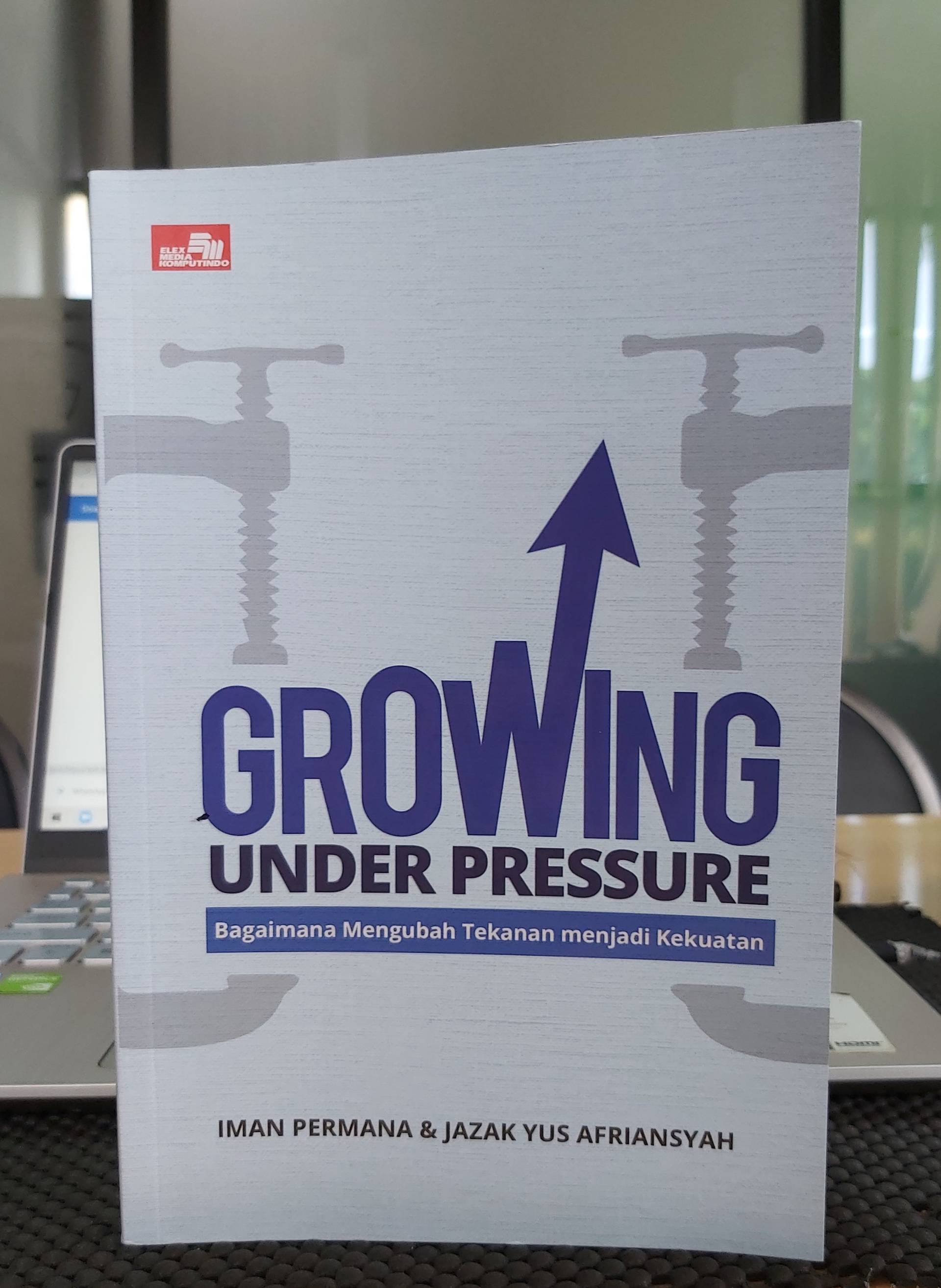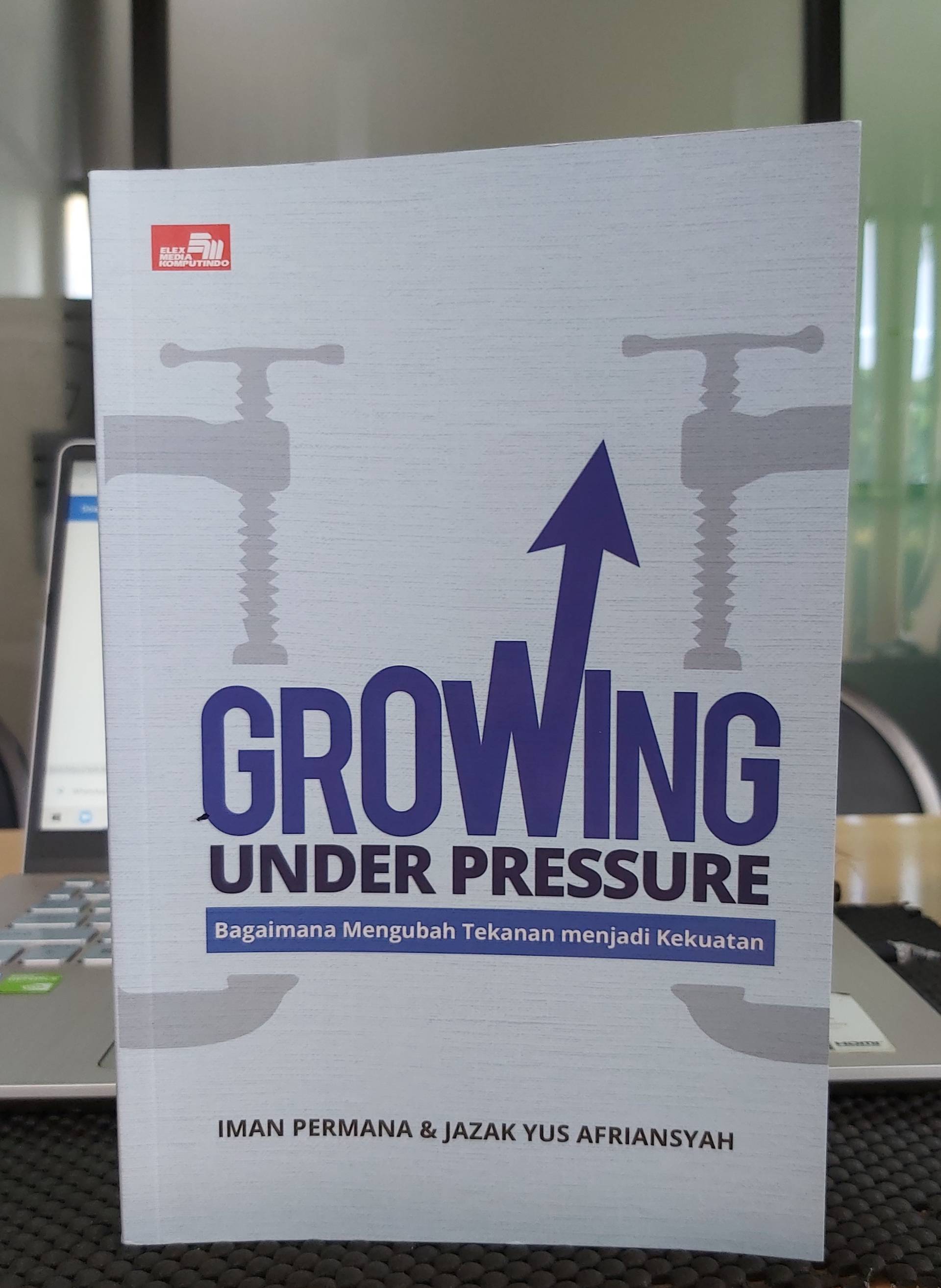


Part 1 of 4 articles
The introduction of this book, Growing Under Pressure, written by Iman Permana, a lecturer at President University (PresUniv), and Jazak Yus Afriansyah, a postgraduate student at PresUniv, is very interesting. Both open with a paradox. There are mentioned a number of events that should make us happy, but what actually happened is the opposite. We are not happy, but stress instead and eventually trigger pressure. What are the events? First, on vacation. Who doesn't like vacations? However, an expedia.com survey, as quoted in this book, states that 53% of workers in the United States (US) are actually not fit after returning from vacation. Meanwhile, there are 30% of workers still have to work, even though they are on vacation.

In fact, holidays should make us happy. It makes the body and minds fresher. However, what happened was the opposite for various reasons. For example, if on the weekend you and your family go on vacation to the Puncak area in Bogor and return to Jakarta via the Jagorawi toll road on Sunday evening, you will almost certainly face a very long traffic jam. This kind of condition certainly doesn't make you happy, but on the contrary, it is depressed.
As a result, when arriving home on Sunday night, you and your family are really exhausted. Finally, when you return to work on Monday, your body condition is not really fit and your mind is not happy.
Second, when "should" relax on Sunday. Why? A survey in the United Kingdom shows that as many as 26% of workers actually feel pressured on Sundays. Why? Because they imagine that they have to go back to work the next day. That's why there is the term The Sunday Blues.
Third, when someone gets a new job or gets promoted. A survey conducted by Development Dimensions International, as quoted in this book, states that as many as 60% of managers actually face pressure when got promoted. Promotions are definitely fun, but along with that, there are also lots of new tasks. Then, the managers may also meet new people they do not know. In essence, there is still uncertainty in the new position. This will, in many ways, create new pressures.
Fourth, when you fall in love. An old song says that falling in love has a million feelings. Even so, on the other hand, falling in love also gave birth to a number of new anxieties. For example, how do you maintain a good relationship with your partner? What will happen to your partner's reaction if he finds out our bad side? How do you maintain a good relationship with your partner's family? Will this relationship continue or end? Etc.
Fifth, birthday. For some people, getting older seems to trigger anxiety in itself. At least birthdays is a moment to remind us that we have one year less to live.
Sixth, getting engaged/wedding. Who doesn't worry when the day of engagement/wedding is getting closer. Engagement/wedding events require a lot of preparation. We are worried perhaps there are still many things that go unnoticed so that on the D-day, the event will even fall apart.
Seventh, retire. You may agree or disagree with the idea in this book that a retirement is a happy event. In Indonesia, there are still many who think that retirement is not a pleasant event. That's why retirees apply the term post power syndrome. Many companies, including even government circles, specifically hold a Retirement Preparation Period (Masa Persiapan Pensiun or MPP) program for their employees who are approaching retirement age. This program aims to make employees prepare themselves when entering retirement age. The point is that retirement does trigger anxiety and stress. Who wouldn't worry if we had work to do every day, suddenly now we have nothing else to do? Who doesn't worry that in the past there were assistants who were ready to help, now we have to do everything ourselves? Who doesn't worry if in the past we always received a salary every month, and then not anymore.
Those are seven events that should make us happy, but the opposite happens, namely increasing anxiety and stress. (JB Susetiyo, PR team. Photo: Lita Gabriella).